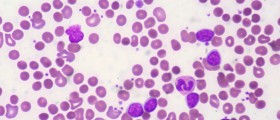Overview
We shall discuss these possibilities and mention ways that one can alleviate the mentioned symptoms.

Causes
Physical exertion
The longer one performs physical activities, the more rest and recovery the body needs and if this rest is not provided, muscle tissue and cells will break down at a rapid rate and this can lead to muscle fatigue.
This issue can be avoided by getting at least eight hours of sleep at night and by trying to go to bed at the same time to help the body's internal clock stay in check.
Anaemia
A person is said to have anemia if the body isn't producing enough red blood cells or if the red blood cells don't contain enough haemoglobin, which is the protein that carries oxygen to the tissues and organs of the body. Oxygen transport to the essential organs and tissues is compromised and this can lead to fatigue and the sensation of feeling heavy and sluggish.
The cause of the anemia needs to be determined and managed. The most common deficiency resulting in anemia is a lack of iron in the body, which can be managed through supplementation of the element, but folate or vitamin B12 deficiencies may also cause anemia.
Allergies
Allergies cause nasal congestion and airway restriction which can lead to decreased oxygen intake during such issues. As a result, oxygen supply to tissues and organs of the body may lead to fatigue which may result in poor sleep and decreased productivity during the following day due to feeling run down.
Control of allergic reactions with medications such as non-drowsy antihistamines and preventing or avoiding allergens that trigger these reactions are important therapies to take into account.
Underactive thyroid
Hypothyroidism, caused by an underactive thyroid gland, leads to decreased energy levels due to the metabolic rate of the body being affected. This condition negatively impacts the gastrointestinal system and causes constipation which may make the affected individual feel bloated and heavy.
Hypothyroidism can be effectively managed with thyroid hormone replacement therapy.
Mental health disorders
A generalized anxiety disorder may develop from having to deal with persistent and recurrent physical and emotional stressors. Increased stress leads to the release of hormones in the body that affects one's blood pressure and heart rate. A persistent increase in these vital signs can cause one to feel fatigued and cause the body to feel lethargic. If this situation becomes a chronic problem, then other psychiatric issues such as depression may develop which also causes the affected individual to experience a decrease in drive to perform previously enjoyable activities and also begin to feel like they would rather do nothing.
- www.ncbi.nlm.nih.gov/pmc/articles/PMC2375565/
- Photo courtesy of SteadyHealth




-In-Adults_f_280x120.jpg)
-And-Children-16-Warning-Signs-And-Symptoms_f_280x120.jpg)










